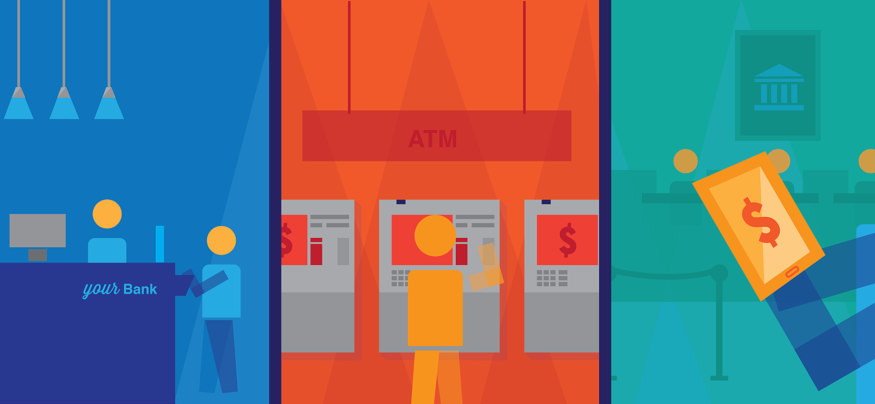The way consumers think about banking is evolving, and financial institutions are changing their business models to reflect this evolution.
Contrary to popular belief, the size of a financial institution has little to no influence on a consumer’s choice of bank. According to The State of Retail Banking: Consumer Survey 2016, the reputation of a bank matters to only 55 percent of respondents, whereas 68 percent are influenced by the bank’s location and office hours. Available products and services, as well as the rates for these offerings, will help shape the future of banking.
Communication Between Banks and Customers Is Changing
The importance of communication between a bank and its customers shouldn’t be underestimated. While contact via phone is the least favorable solution, there’s still large demand for in-person meetings. The State of Retail Banking survey states that 61 percent of respondents would not feel comfortable at a branch with no teller and completely automated transactions. Alternatively, 65 percent of participants would be willing to schedule an appointment with a branch specialist to discuss their needs.
According to the survey, the top reasons why consumers still visit their local bank branch are to make a deposit or withdrawal, use the ATM or open an account. Wealth management and insurance, two emerging trends in retail banking, aren’t among those main reasons, as banks don’t actively pursue the cross-selling opportunity. However, eight in 10 respondents said that they would prefer more personalization for these services. Proactively cross-selling wealth management and insurance services could very well become a future retail banking trend.
There’s also evidence in the survey that confirms that consumers do care about their banks, and want to help these institutions evolve over time. All generations indicated they’d be willing to come into the bank during off-peak times if an incentive were provided. Moreover, 85 percent of respondents indicated they’d answer a short survey to provide feedback on their most recent bank visit.
Products and Services Matter
To evolve with consumer expectations, banks should pay special attention to the kinds of service enhancements customers want to see. Almost seven in 10 people expressed their desire for banking after business hours, whereas 46 percent would like an option to pre-book an appointment. Banks should consider these conditions carefully, especially if they want to cater to the millennial demographic.
The millennial demographic is the driving factor in new retail banking trends, as the survey shows they’re the most outspoken in their desire for service enhancements. Millennials have grown up with a completely different mindset, and have come to expect from banks the kind of enhanced technology they use in their everyday lives. For example, millennials place great importance on technology that allows them to bank on their own schedules, such as the ability to schedule a video call from home with a financial advisor.
Free Wi-Fi in banks is also important to growing numbers of consumers. The number of internet-connected mobile devices we carry with us every day is increasing, and Wi-Fi access is becoming the norm. According to the survey, 40 percent of respondents indicated that having a cafe-style environment with free Wi-Fi would definitely influence their decision on where to bank, and 26 percent of individuals stated it would somewhat influence their banking location preference.
Certain aspects of retail banking aren’t undergoing major changes just yet. While customers keep visiting their bank branches, the majority indicate that they want quick, convenient and personalized service above anything else. Peer-to-peer interaction is an integral part of the future of banking, and banks will have to prioritize this personal aspect of service above automation if they want to evolve along with their consumers.
Banking trends must change along with customer expectations. Learn what it means for banks to be customer-centric in the digital age here.







